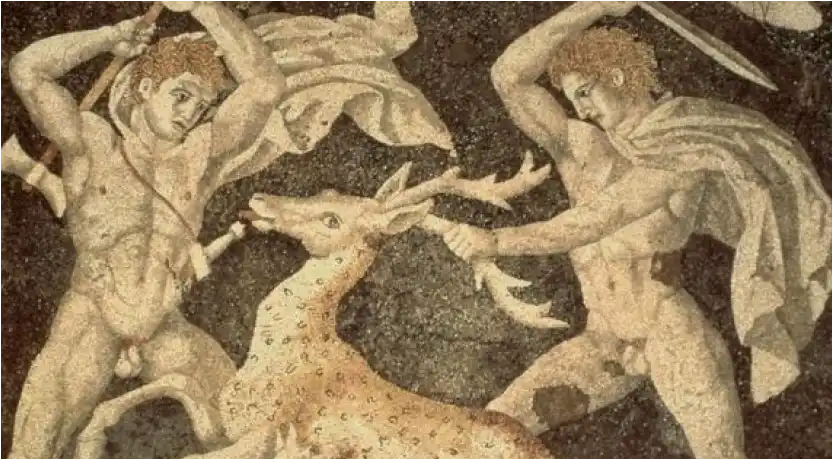For over a century and a half, the Macedonian kingdom was the dominant power in the Hellenistic world. However, its expansion inevitably brought it into conflict with another rising power from the west: Rome. To understand the end of the Hellenistic Age, one must examine how Macedonia’s encounter with Rome led to its downfall. A series of brutal wars pitted two of the greatest military systems of antiquity against each other, and the outcome would determine the fate of the Mediterranean world.
Table of Contents
⚔️ The Clash of Titans: Phalanx vs. Legion
The Macedonian Wars were a classic military showdown between two different fighting styles. The Macedonian army was centered on the phalanx, a dense formation of soldiers wielding long sarissa pikes. It was an almost unstoppable force on flat, open ground. The Roman army, on the other hand, was built around the more flexible legion, which was composed of smaller, more adaptable units (maniples) armed with javelins (pila) and short swords (gladii). The flexibility of the legion, especially on broken or uneven terrain, would prove to be a decisive advantage.
A Series of Macedonian Wars
The conflict unfolded over a series of four wars. The first two, while costly, were not decisive. The turning point came in the Battle of Cynoscephalae in 197 BC, where the Roman legions under Flamininus were able to exploit gaps that opened up in the Macedonian phalanx as it moved over hilly terrain, inflicting a crushing defeat on Philip V. The final, decisive blow came at the Battle of Pydna in 168 BC, where another Roman army annihilated the forces of Perseus, the last king of Macedonia. This battle marked the end of Macedonian independence.
🏛️ The End of a Kingdom and the Rise of Rome
After the defeat at Pydna, the Macedonian kingdom was dismantled. The Romans initially divided it into four client republics before eventually annexing it as a Roman province. The fall of Macedonia was a pivotal moment in ancient history. It marked the end of the era of the great Hellenistic successor kingdoms that had dominated the eastern Mediterranean since the death of Alexander the Great. The power vacuum was filled by Rome, which now stood as the undisputed master of the Mediterranean world, paving the way for the rise of the Roman Empire.
Roisman, Joseph, and Ian Worthington, editors. A Companion to Ancient Macedonia. Wiley-Blackwell, 2010.
More Topics
- Curses: The History of the Evil Eye and Binding Magic
- Magical Plants: A Witch’s Garden of Herbs and Poisons
- Roman Magic: Curses, the Strix, and Everyday Protection
- Circe: The Greek Sorceress of Transformation and Myth
- Greek Magic: Hecate’s Power, Oracles, and Enchantresses
- Japanese Magic: Yōkai, Onmyōdō, and Supernatural Folklore
- Empress Chen Jiao: The Royal Scandal of Witchcraft in Han China

